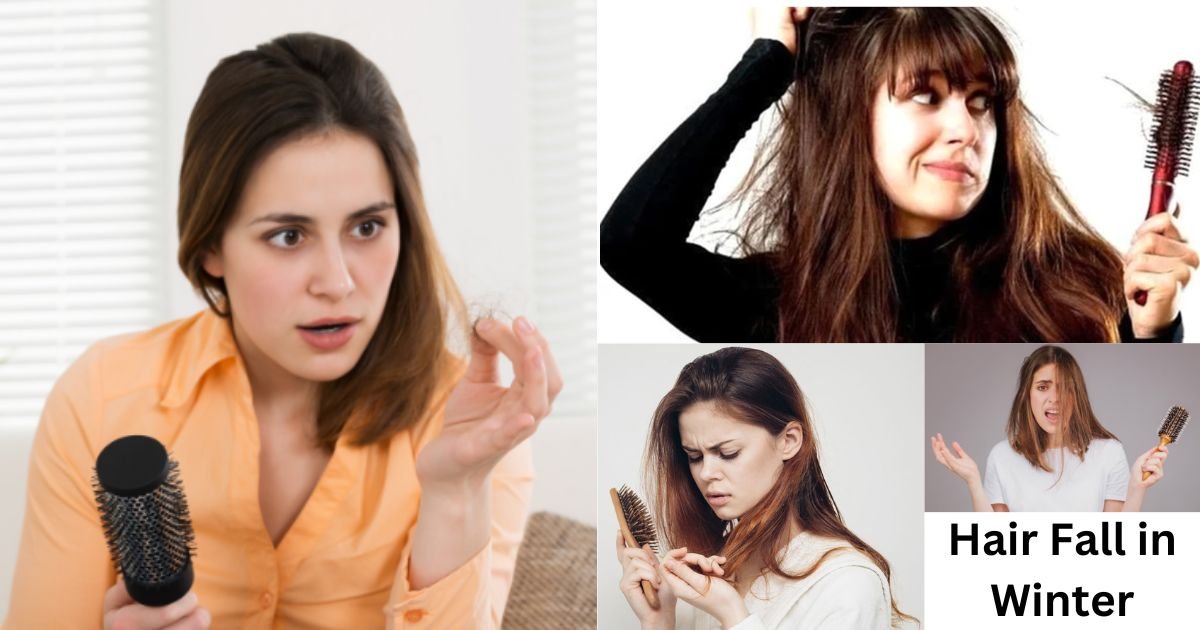Hair Fall in Winter: Causes and Solutions
Introduction
As the temperatures drop and the air becomes drier, many individuals experience a common concern – increased hair fall in winter. While it’s normal to shed some hair throughout the year, the cold, dry weather of winter can exacerbate this issue for some. Understanding the reasons behind winter hair fall and implementing effective strategies can help mitigate this seasonal challenge and maintain healthy hair year-round.
The Impact of Winter Weather on Hair
- Dry Air: During winter, the air tends to be drier both indoors and outdoors due to lower humidity levels. This dryness can strip the hair of its natural moisture, leading to dryness, brittleness, and increased susceptibility to breakage and shedding.
- Cold Temperatures: Exposure to cold temperatures can cause the hair cuticle to constrict, making it more prone to damage. Additionally, frequent use of heating devices such as heaters and hot showers can further contribute to moisture loss and weaken the hair strands.
Common Causes of Hair Fall in Winter
- Seasonal Shedding: It’s normal for hair to undergo seasonal shedding, with increased hair fall typically observed during the fall and winter months. This shedding is often a result of the hair follicles transitioning from the resting phase (telogen) to the growth phase (anagen), leading to the shedding of old hair to make way for new growth.
- Dry Scalp: The dry, cold weather of winter can also lead to a dry scalp, causing itching, flakiness, and irritation. Scratching the scalp excessively can damage the hair follicles and contribute to hair fall.
Click Here – Hairfall In Monsoon
Effective Solutions for Winter Hair Fall
Certainly, here are some effective treatments for managing hair fall in winter:
- Hydrating Hair Masks: Incorporate hydrating hair masks into your weekly hair care routine to replenish moisture and nourish your hair. Look for masks containing ingredients like argan oil, shea butter, or coconut oil, which help hydrate and strengthen the hair strands, reducing breakage and shedding.
- Scalp Massage with Oil: Regular scalp massages with warm oil can stimulate blood circulation, nourish the hair follicles, and alleviate dryness and itching associated with winter weather. Choose oils such as olive oil, almond oil, or jojoba oil, and gently massage them into your scalp using circular motions before shampooing.
- Use a Moisturizing Shampoo and Conditioner: Switch to a moisturizing shampoo and conditioner specifically formulated for dry or damaged hair during the winter months. These products contain hydrating ingredients like glycerin, hyaluronic acid, or shea butter, which help retain moisture and prevent hair from becoming dry and brittle.
- Limit Heat Styling: Reduce the use of heat styling tools such as hair dryers, straighteners, and curling irons during winter, as they can further strip moisture from your hair and contribute to breakage and hair fall. Instead, opt for air-drying or use heat protectant products before styling to minimize damage.
- Protective Hairstyles: Consider wearing protective hairstyles such as braids, buns, or twists to minimize exposure to the harsh winter weather. These styles help protect your hair from environmental elements like cold wind and snow, reducing the risk of damage and hair fall.
- Stay Hydrated: Drink plenty of water throughout the day to stay hydrated from within. Hydration is essential for maintaining scalp health and promoting hair growth, especially during dry winter months. Herbal teas and warm soups can also help keep you hydrated and nourished during winter.
- Nutritional Supplements: Consider taking nutritional supplements to support hair health during winter. Supplements containing vitamins like Biotin, Vitamin E, and Omega-3 fatty acids can help strengthen hair follicles, improve hair texture, and reduce hair fall. However, it’s essential to consult with a healthcare professional before starting any supplementation regimen.
By incorporating these treatments into your winter hair care routine, you can effectively manage hair fall and keep your hair healthy and vibrant throughout the season.
Conclusion
While winter hair fall can be a common occurrence, understanding its causes and implementing appropriate measures can help minimize its impact and maintain healthy hair throughout the season. By prioritizing hydration, gentle hair care, scalp health, and protective styling, you can ensure that your hair remains resilient and beautiful, even amidst the challenges of winter weather.









